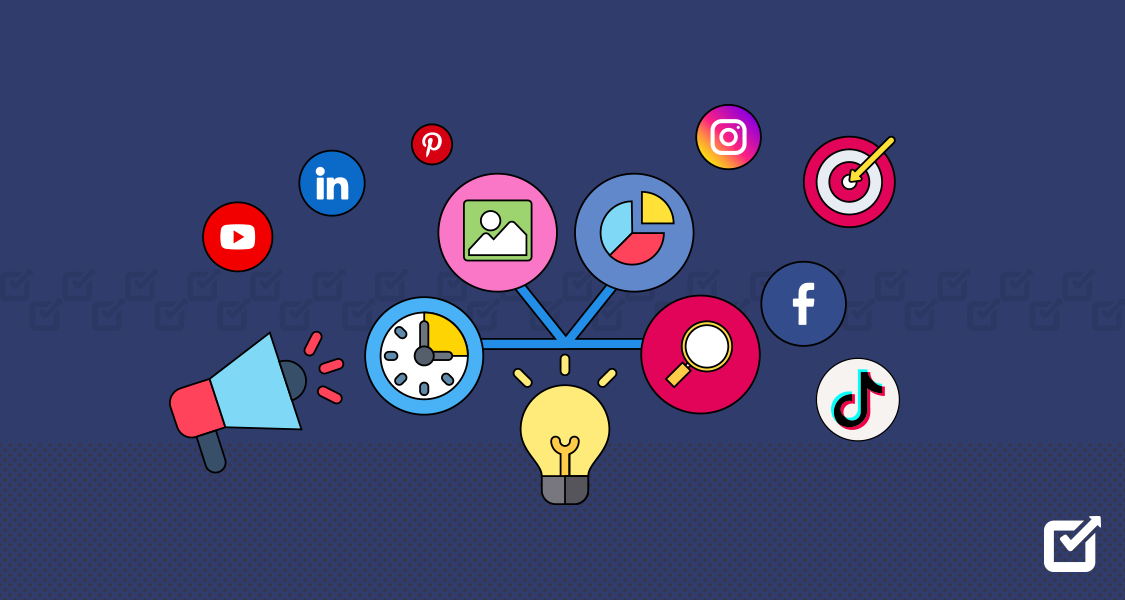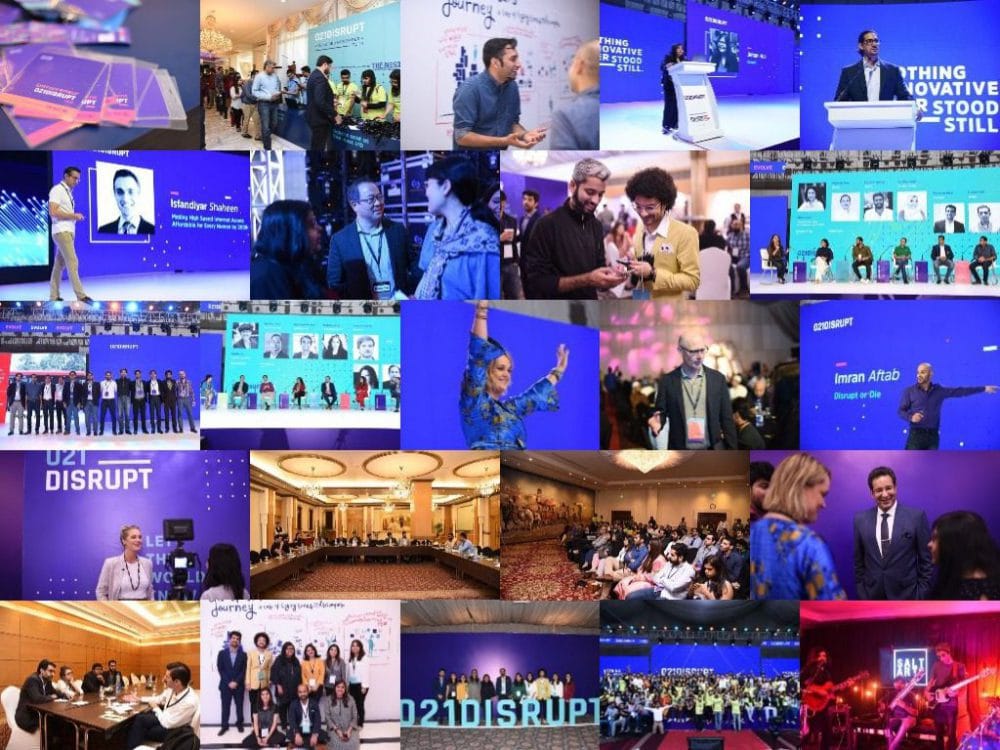Just a few years ago, artificial intelligence (AI) seemed like something out of science fiction. Today, AI has arrived, and it is truly transforming how businesses operate across all sectors.
When you think of AI, you may think of transformer-style robots. But Artificial Intelligence is much more than that. AI, in its true essence, is a suite of self-evolving technologies that can handle different types of operations, including market prediction, content creation (just look at the Champ AI Suite), data analysis, and so much more!
Let’s explore the multiple roles of AI in businesses today and how this technology can make your operations so much easier!
What Is AI in Business?
Artificial Intelligence (AI) in business refers to applying advanced technologies and algorithms to automate tasks, analyze data, make predictions, and improve decision-making processes.
AI systems are designed to mimic human intelligence by learning from data, recognizing patterns, and adapting to changing scenarios. Learning what is AI in business is essential if you want to stand out among your competitors in the digital world.
One of the primary applications of using AI in business is process automation. AI-powered automation streamlines repetitive tasks, enhances productivity, and reduces operational costs. For example, chatbots and virtual assistants use natural language processing (NLP) algorithms to interact with customers, handle inquiries, and provide support, freeing up human resources for more complex tasks.
Ready to Implement AI in Business? Try Social Champ!
Social Champ offers AI-powered Best Time to Post, AI Imaginator, and AI Content Wizard to help you streamline social media management!
Artificial Intelligence also empowers businesses with advanced cybersecurity capabilities, detecting and mitigating threats in real time through anomaly detection, behavior analysis, and predictive modeling.
Related Article: Everything You Need to Know About AI-Generated Content in 2024
How AI Is Used in Business?
AI is a transformative technology revolutionizing the way businesses operate across various industries. Its applications are diverse and span multiple functions, from improving operational efficiency to enhancing customer experiences.
Here’s a detailed explanation of how to use AI in business.
Automation and Optimization
AI automates repetitive tasks, streamlining processes and reducing manual effort. For example, in manufacturing, AI-driven robots automate assembly lines, increasing production efficiency and accuracy.
AI-powered optimization algorithms analyze data to streamline processes, resource allocation, and decision-making. It also perfects route planning, inventory management, and supply chain operations in logistics, reducing costs and improving delivery times.
Customer Insights and Personalization
Artificial Intelligence further analyzes customer data to provide detailed information about preferences, behavior, and buying patterns. This data-driven approach enables businesses to segment customers, personalize offerings, and effectively target specific audiences.
Predictive Analytics and Forecasting
AI-driven predictive analytics models forecast future trends, outcomes, and demand based on historical data and machine learning algorithms. This capability helps businesses make informed decisions, anticipate market changes, and plan strategically.
Financial institutions also use artificial intelligence (AI) for risk assessment, credit scoring, and fraud detection. These businesses leverage predictive analytics to mitigate risks, improve lending decisions, and enhance security measures.

A snapshot of Social Champ’s AI-powered best time to post feature using predictive analysis Image and Video Recognition
Algorithms using AI analyze images and videos to identify objects, patterns, and anomalies. In retail, AI-powered image recognition systems enhance inventory management, detect counterfeit products, and improve security measures.
In agriculture, AI-based drone technology uses image recognition to monitor crop health, identify pest infestations, and optimize irrigation practices, increasing crop yields and sustainability.
Cybersecurity and Risk Management
AI strengthens cybersecurity measures by detecting and mitigating cyber threats, malware, and data breaches in real-time. AI-driven security solutions use anomaly detection, behavior analysis, and threat intelligence to identify suspicious activities and protect sensitive data.
Risk management tools powered by AI analyze data to assess risks, vulnerabilities, and compliance issues, enabling businesses to proactively mitigate risks, ensure regulatory compliance, and protect assets.
Healthcare and Medical Applications
AI is transforming healthcare through medical imaging analysis, disease diagnosis, drug discovery, and personalized treatment plans. Machine learning algorithms analyze medical data, patient records, and genomic information to improve diagnoses, treatment outcomes, and patient care.
Content Generation
Natural Language Processing (NLP), a component of AI, analyzes content, writes articles, summaries, and reports, and optimizes content. AI tailors content recommendations, product descriptions, and marketing messages based on user preferences, behavior, and demographics. AI curates relevant content from diverse sources, organizes information, and recommends curated content to users based on their interests.

A snapshot of Social Champ’s AI being used for content creation Accounting
Artificial intelligence (AI) is transforming financial management. AI-powered bookkeeping automates tasks like data entry, reconciliation, and financial reporting, freeing up human accountants to focus on more strategic work. This automation also minimizes manual errors, leading to improved accuracy in your financial records.
Additionally, AI can analyze transactions and identify unusual patterns that might indicate fraud. By proactively detecting suspicious activity, AI helps mitigate risks and strengthens your internal financial controls.
Finally, AI can leverage historical data and market trends to predict future financial performance. This includes forecasting revenues, expenses, and cash flow, which is crucial for making informed business decisions.
Marketing
AI is also revolutionizing marketing strategies. By segmenting audiences and analyzing customer behavior, AI personalizes content, ads, and product recommendations, leading to increased engagement and conversions.
Furthermore, AI takes the guesswork out of campaign optimization. It analyzes performance data, predicts campaign outcomes, and recommends adjustments to ensure you’re getting the most out of your marketing efforts. AI even helps with customer journey mapping. It identifies all the touchpoints a customer has with your brand and optimizes interactions across those channels, creating a seamless and positive customer experience.
Related Article: 10 Hottest Content Marketing Trends That Will Rule the Industry in 2024
How Artificial Intelligence Helps in Business Functions
Artificial Intelligence (AI) is transformative in enhancing various business functions across industries. Here’s how AI contributes to key areas of business operations:
Artificial Intelligence in the Health Sector
- Medical Imaging Analysis: AI algorithms analyze medical images (like X-rays or MRI scans) to assist in diagnosis and treatment planning. For instance, AI-powered systems can detect abnormalities in images with high accuracy, aiding radiologists in detecting diseases early.
- Drug Discovery: AI speeds up drug discovery processes by analyzing vast datasets, predicting molecular structures, and identifying potential drug candidates. Companies like Insilico Medicine use AI to design new drugs and accelerate research.
- Personalized Medicine: AI analyzes patient data, genetics, and medical history to develop personalized treatment plans. Examples include AI-driven platforms like IBM Watson for Oncology, which assists oncologists in recommending personalized cancer treatments based on patient data.
Artificial Intelligence in the Sales Sector
- Lead Scoring: AI algorithms predict lead quality and likelihood of conversion based on historical data and behavior analysis. For instance, Salesforce’s Einstein Lead Scoring uses AI to prioritize leads for sales teams, improving efficiency and focus.
- Sales Forecasting: AI-driven sales forecasting models predict future sales trends, revenue projections, and customer behavior patterns. Companies like Zoho CRM utilize AI for accurate sales predictions and decision-making.
- Customer Relationship Management (CRM): AI-powered CRM systems like Microsoft Dynamics 365 provide insights, automation, and personalized interactions to enhance sales processes and customer relationships.
Artificial Intelligence in the Marketing Sector
- Personalization: AI enables personalized marketing campaigns by analyzing customer data, preferences, and behavior. Amazon’s recommendation engine uses AI to recommend products based on past purchases and browsing history.
- Content Optimization: Content optimization tools like Market Muze analyze content performance, optimize SEO, and suggest improvements for better engagement and visibility.
- Social Media Analysis: AI-powered social listening tools monitor social media conversations, sentiment, and trends. These tools help marketers analyze social data, track brand mentions, and understand audience sentiment for effective social media strategies.
Artificial Intelligence in Customer Support
- Chatbots and Virtual Assistants: AI-driven chatbots provide instant responses to customer queries, automate routine tasks, and improve customer service efficiency.
- Sentiment Analysis: Artificial Intelligence analyzes customer feedback, reviews, and interactions to gauge sentiment and identify areas for improvement. Customer support platforms use AI for sentiment analysis and customer satisfaction monitoring.

A snapshot of Social Champ’s AI-powered sentiment analysis
Artificial Intelligence in Human Resources
- Recruitment and Hiring: With AI, you can streamline recruitment processes by automating candidate screening, analyzing resumes, and identifying top candidates. AI-based platforms like LinkedIn Talent Insights and HireVue enhance hiring efficiency and candidate assessment.
- Employee Engagement: Businesses can also leverage AI to analyze employee data to measure engagement, predict turnover risks, and customize development plans. HR platforms like Culture Amp use AI for employee feedback analysis and engagement strategies.
Artificial Intelligence in Fraud Detection and Security
- Anomaly Detection: AI-powered algorithms analyze vast amounts of data to detect anomalies and unusual patterns that may indicate fraudulent activities. For example, AI can detect unusual spending patterns on credit cards, abnormal network traffic in cybersecurity, or suspicious behavior in financial transactions.
- Machine Learning Models: Machine learning models, a subset of AI, are trained on historical data to identify fraud patterns and predict potential fraud cases. These models continuously learn and adapt to new fraud techniques, enhancing accuracy and reducing false positives.
Featured Article: GPT 3 Chatbot: A Magic Tool to Supersede Human Workforce & More
Tips and Examples for AI in Business
Artificial intelligence (AI) is no longer a futuristic concept; it’s a tool businesses can utilize to gain a competitive edge. From streamlining operations to personalizing customer experiences, AI offers various applications across various departments. There are multiple benefits of AI in business, so let’s discuss a few examples and tips.
Data Analytics and Insights
- Tip: Use AI-powered analytics tools to extract valuable insights from large datasets. Use machine learning algorithms for predictive analytics and data-driven decision-making.
- Example: Netflix uses AI algorithms to analyze viewer data, predict content preferences, and recommend personalized movie and TV show suggestions.
Customer Service and Support
- Tip: Implement AI-driven chatbots and virtual assistants to enhance customer service. Automate routine inquiries, provide instant responses and improve overall customer experience.
- Example: Bank of America’s AI-powered chatbot, Erica, assists customers with banking tasks, answers questions, and provides financial insights.
Sales and Marketing Optimization
- Tip: Utilize AI for lead scoring, predictive analytics, and targeted marketing campaigns. Personalize marketing messages, optimize sales strategies and improve customer engagement.
- Example: Coca-Cola is another AI in business example that analyzes consumer behavior, segment audiences, and create personalized marketing campaigns. This leads to increased brand engagement and sales.
Supply Chain Management
- Tip: Use AI for demand forecasting, inventory optimization, and logistics management to improve supply chain efficiency, reduce costs, and enhance inventory management.
- Example: Amazon uses AI algorithms to forecast demand, optimize inventory levels, and improve delivery efficiency, ensuring timely and accurate order fulfillment.
Human Resources and Talent Management
- Tip: Implement AI in recruitment, candidate screening, and employee engagement. Use AI-driven tools for resume parsing, skills assessment, and performance analytics.
- Example: IBM’s Watson Recruitment uses AI to analyze resumes, match candidates to job requirements, and identify top talent for recruitment purposes.
Financial Analysis and Risk Management
- Tip: Use AI for financial data analysis, fraud detection, and risk assessment. Use machine learning models to identify anomalies, detect fraudulent activities, and mitigate risks.
- Example: PayPal employs AI algorithms to detect fraud, analyze transaction patterns, and identify suspicious activities to prevent financial fraud and enhance security.
Product Development and Innovation
- Tip: Incorporate AI into product design, testing, and optimization processes. Use AI-driven simulations, generative design, and predictive modeling to accelerate innovation cycles and improve product quality.
- Example: Another AI in business example is Tesla because it utilizes AI for autonomous driving features, vehicle safety enhancements, and predictive maintenance, leading to innovative and technologically advanced electric vehicles.
Conclusion
Artificial Intelligence automates creative tasks, personalizes experiences, improves productivity, and fosters innovation in various domains, making it a valuable asset for modern businesses. In 2024, AI in business will become a fundamental driver of innovation, efficiency, and competitive advantage in business. Its technologies will become integral across various business functions, from data analytics and customer service to sales optimization and supply chain management.

















